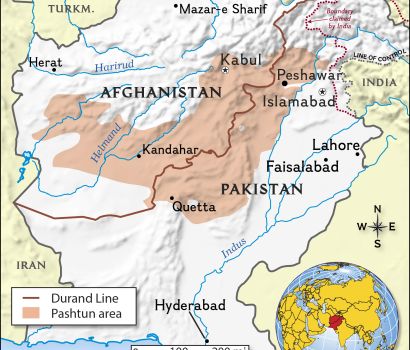The news in Dawn made interesting reading on 08 Dec 2022. The editorials discussed beheading of a soldier by TTP in Bannu and the disquiet on the Western front. This was reinforced by an op-ed by Zahid Hussian which highlighted the terror nexus which confronts Pakistan in Afghanistan. Seen holistically, the direction and scale of the present and future security threat to Pakistan is clear. However , FS Aijazuddin, a retired diplomat, wants to absorb POK constitutionally into Pakistan! The economic contrast is also interesting. Miftah Ismail, its former finance minister discusses elite capture of resources and ineffectiveness of governance. He also talks of the poverty trap in which Pakistan exists. A Dawn editorial talks of worsening hunger in Pakistan. Amidst this a rating agency predicts that Pakistan will grow into one of the world’s largest economies based on its population growth. The focus in Pakistan is more on becoming a large economy and annexing Kashmir rather than alleviating poverty and dealing with the present threats. In fact, Pakistan seriously suffers from this ‘Look London, See Tokyo’ vision. This is something fundamental to Pakistan and needs deeper understanding.
Pakistan is the product of lines drawn by two typically phlegmatic Englishmen – Mortimer Durand and Cyril Radcliffe. Even though these lines came into being at different points of time, they are both contentious and emotive. There must be something evil, magical or star crossed about the Durand and Radcliffe Lines. They have hardwired Pakistan to always look at the wrong direction. They have instilled into Pakistan a jinxed vision to look at the wrong end of the kaleidoscope perpetually. Whether it is a security, cultural or an economic issue, this star crossed vision is unique to Pakistan. Let us understand this better.
Security

The Afghan border was always troublesome to the British Indian Empire. If one goes into history, the Britishers had deployed a major part of their Army in this area to keep their Empire intact. History records that there were three Anglo Afghan wars – 1839 – 1842, 1878 – 1880 and 1919. All three were disastrous expeditions. One of them was so disastrous, that it finds a special mention in Norman Dixon’s classic – On The Psychology Of Military Incompetence. I am referring specifically to the Battle of Kut. Military incompetence was accompanied by classic British colonial greed and bureaucratic incompetence when Mortimer Durand established the Durand Line (roughly along the crest line of the Hindukush) in 1893 as the international border between India and Afghanistan. In doing so, he split the land inhabited by Pashtuns. The Pashtuns either side of the Durand Line have never recognised this line. Resultantly, there has always been a problem here. When Cyril Radcliffe drew his line to ultimately create the state of Pakistan, he gifted them eternally with Pashtun nationalism and the instability which goes with it along the Durand Line. Simply put, every government or ruling entity in Afghanistan has and will encourage Pashtuns inside Pakistan to have their own separate state inside that country. That is historic and an enduring instability.
Jinnah knew this well enough. From the beginning, his aim was to supress this sentiment. He diverted Pashtun nationalism by sending tribals from that area into Kashmir in 1947. Ayub Khan also did the same trick in 1965. All the Pakistanis were alive to this issue and did nothing about it. In fact, on the other hand, the Pakistani Army was trying out to sort out India and getting itself sorted out in the process! Down the line, Pakistan’s ace radicalist, Zia Ul Haq, was fully cognisant of this persistent problem. He repurposed the Pashtuns as Mujahideen and sent them into Afghanistan in support of USA to defeat USSR. They were also sent into India as foreign mercenaries to annexe Kashmir. Pakistan, at that time, was killing three birds with one stone – USSR, India and Pashtun nationalism. The stone being the greenbacks from USA. The whole thing went on like clockwork, till the Soviets were defeated and Uncle Sam left the place leaving Pakistan to its own machinations.
So a new plan was needed. The ‘Diversion of Pashtun Nationalism’ program was reset by creating the Taliban. The Pakistan Army scripted this ingenious plan to install the Taliban to rule Afghanistan. They could then control both sides of the Durand Line as also wreak revenge on India. It succeeded much beyond their imagination. Pashtun nationalism was again suppressed and Kashmir was set afire. Along the course, just as it seemed that Pashtun nationalism could reignite, the venerable Osama Bin Laden gave Pakistan a life line by bringing the Twin Towers down. When the Taliban were driven out of Afghanistan by US forces, they naturally came into Pakistan. It was a godsend opportunity again for the Pakistani Generals. As Pakistan played its game of running with the hare and hunting with the hounds in the war against terror, they saw a great opening to once again repurpose Pashtun nationalism back into Afghanistan. They commenced their plan to hold and wear out USA. They succeeded in this diversion for two decades. It ended with the US withdrawal from Afghanistan in 2021. The Pakistanis considered themselves as successful to have defeated yet another superpower and were exultant about it.
However in the meantime , the Indian Army handled all that was thrown at it in Kashmir. Resultantly, India grew too strong. Pakistan became the international untouchable. No one wanted the main export of Pakistan – jihadi terror. In this period most importantly, the Taliban and its little Pashtun brother, the TTP, cut loose from Pakistan.
The Pakistani plan to divert Pashtun nationalism has now run its course with the Taliban firmly in place. Afghanistan, ruled by Pashtun dominated Taliban and their little cousins across the Durand Line seek to liberate all Pashtuns from Pakistan. This historical reality has come to stay in its existential proportions. From any angle Pakistan’s existential threat is from its Western Border but it treats India as its existential threat. India on its part has started to look beyond Pakistan. It is of supreme indifference to India if it has to deal with one Pakistan or more mini Pakistanis. Either way, the resultant entity/entities will be a problem, but one which India is capable of handling. In all cases, India is the least interested in annexing any part of Pakistan through a war. India prefers to progress in peace. In fact, the general outlook in India is that the best Pakistan is one which is beset with internal problems and looks continually westwards. That state has been reached. So the sum of the story is that Pakistan’s existential threat is in the West and their survival lies in peace with India. However, for the Pakistani Army, the threat is India. It is a classic case of Look London See Tokyo from a security point of view.
Culture and Identity
Let us see the next facet of Pakistan’s jinxed vision. It is about the deep cultural and identity crisis in the Pakistani psyche. Pakistan is product of the Indian subcontinent. It has not dropped out of Mars. The DNA of an average Pakistani is deeply linked to the Indian DNA. It includes language, eating habits, social habits, practices and norms of daily life. People in Pakistan have more links with those in India than with any other country. In fact ask any Pakistani, he will be most at ease in India than in other countries. Yet the Pakistani looks Westward for his roots. He has imaginary moorings in Turkey, Saudi Arabia or Persia. He thinks that he is an Arab or a Turk or a Persian and a descendent of the great empires of that region. The fundamental fact is that those countries look at the average Pakistani nothing more than as troublesome menial labour. To put it in perspective, from all counts the Pakistani is an extension of the Indian homo-sapiens. However, he believes that the very basis of existence of being a Pakistani is being anything but Indian. This is an identity crisis of an extreme variety.
Economy
The story does not end here. Many opinion makers in Pakistan feel that it is time to wish all the best to the Kashmiris in their struggle and let them make their terms with India as they deem fit. They opine that it is time to make peace with India in order to revive the Pakistani economy, which has been plumbing new depths. All of them realise that India is their economic lifeline. The Bajwa doctrine of geoeconomics is an utter failure for N number of reasons including an exploding population, dwindling water resources, lack of foreign investment, radicalised education, lack of resources etc etc. The civil governments, whether they are ‘imported’ like the present one or ‘exported’ like the previous one of Imran Khan, are politically too scared to even look at India to make peace. The Pakistani Army is single minded on its revenge on India. That in all cases is a receding mirage. The realisation that India is their life line has set it but their mental jinx will not allow them to get off their high horse. On the other hand, Pakistan and its Army prefer to have trade relations with Afghanistan. Reason is simple. The narcotic trade lines the pockets of the elite and a good section of the Pakistan Army. However, the funny thing is that a portion of everything which Pakistan imports in scarce foreign exchange is smuggled into Afghanistan. All that smuggling trade is in local currency or whatever the terms are. In essence, Pakistan has to cater for foreign exchange for all smuggled inflows into Afghanistan also. This is a burden in perpetuity. Pakistan is like Sinbad the Sailor with old man Afghanistan round its neck. All the best.
The Opportunity
Look at it any way, Pakistan’s existential problems – culturally, economically and security wise is in the West. Its life line is in the East. However Pakistan thinks exactly the other way around. If there is no change in this jinxed outlook, Pakistan will remain a troubled nation beset with internal problems and a troubled western border for a long time to come. It will continue to be the Sinbad with old man Afghanistan around its neck. Further its economy will continue to stagnate if it does not alter course. However all indications are that it will continue to hold course as it is.
From an Indian perspective, it is good that Pakistan keeps internalising. In fact, this situation gives India an opportunity to do ‘nothing’ and press ahead with its developmental programs. It is a peace dividend of a different kind. We need to recognise it rather than waste our time and energy in trying to retake POK even if it is political rhetoric.
Please also see the video @ https://gunnersshot.com/2022/12/05/where-does-pakistan-go-a-discussion-with-aadi/


Leave a reply to kj64india Cancel reply